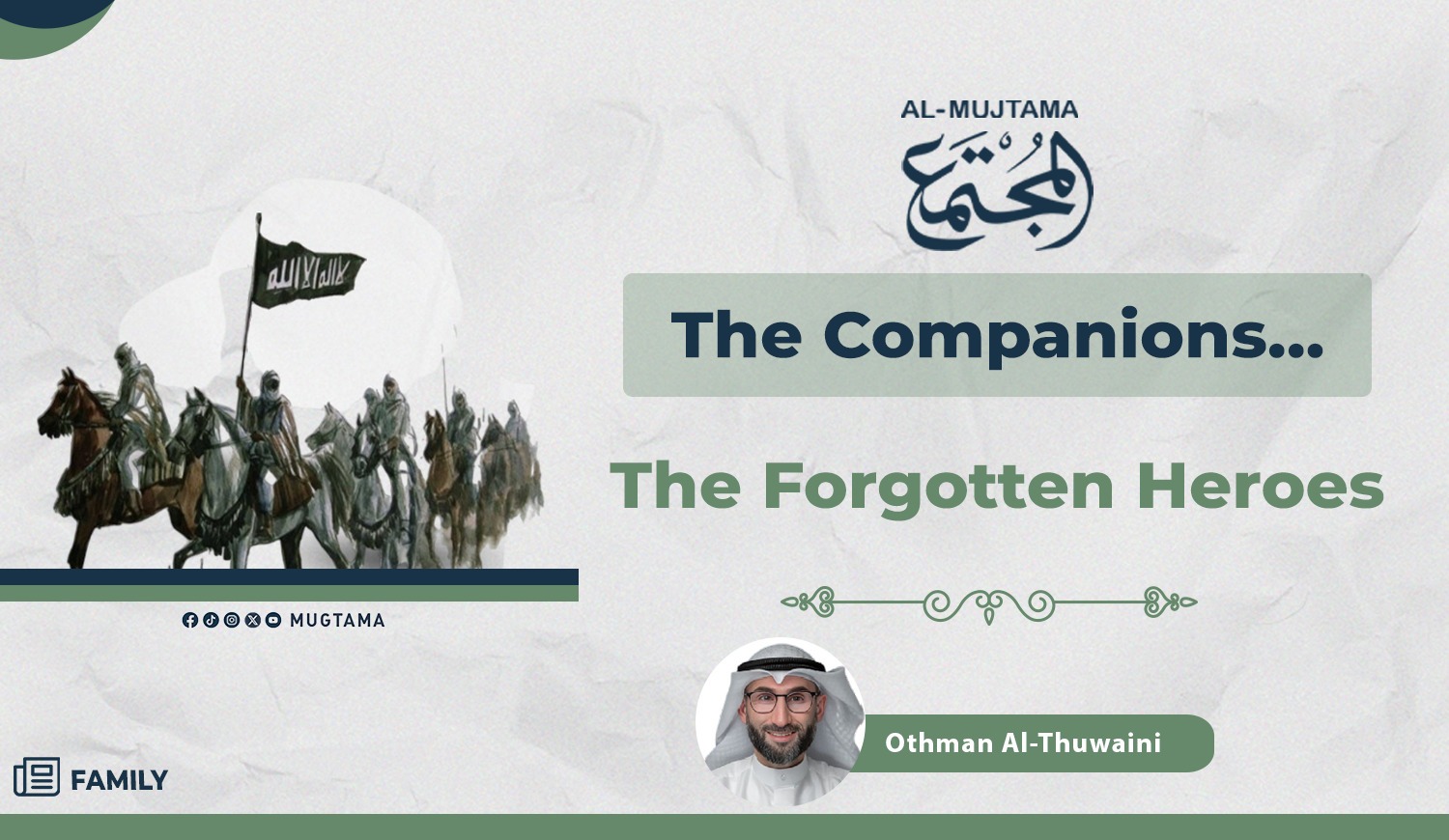Raising a Generation in the Footsteps of the Companions

Between fantastical dragon tales and animated superheroes with extraordinary powers, the features of childhood are being shaped in the minds of our sons and daughters. A generation is growing up with a distorted view of heroism, drawing its values from sources that have nothing to do with its glory or its history.
Amid this soft invasion of
consciousness, the urgent need arises to revive the stories of the Companions
and the Followers in the hearts of youth; for they are the true role models; those
who carved out the glory of this Ummah with their tears, blood, prayers, and
patience. They are the ones whom Allah loved and was pleased with.
Instilling the love of the
Companions in children and youth is not a cultural luxury, it is an educational
necessity, a matter of national security and identity. A nation that does not
know its true heroes will quickly fall prey to foreign models that corrupt its
concepts and eat away its foundations. Living nations realized this centuries
ago and planted the names of their leaders, philosophers, and inventors into
the minds of their children—so much so that a European or American child knows
Napoleon, Einstein, and Beethoven as well as they know their own name!
So how do we plant the love of
the Companions in a child’s heart?
It starts at home—from a mother’s
embrace and a father’s heart—when the child is told a bedtime story about the
piety of Abdullah ibn Umar, the bravery of Khalid ibn al-Walid, or the courage
of Asma bint Abi Bakr. The child’s imagination begins to grow accustomed to
real-life examples rooted in faith and morals. The story should become a daily
habit, like dinner, only more delicious and enjoyable. Parents can encourage
their children to act out the stories in simple family scenes that strengthen
understanding and plant values. The child should be rewarded when they imitate
a Companion—not when they mimic a cartoon superhero.
Then comes the role of the
school. It is not enough for it to stuff students’ minds with dates of battles;
it must narrate events with feeling, linking the lives of the Companions to the
lives of the children. Have we tried teaching the biography of Mus‘ab ibn Umair
as a journey from luxury to devotion? Have we drawn a chart of Umar ibn
al-Khattab’s stances on justice and connected it with the various forms of
injustice the student sees around the world? Have we allowed students to
perform the speeches of Abu Bakr or the commandments of Ali?
As for social media, that is
where the fiercest battle is fought. We must produce engaging visual content
about the lives of the Companions—short clips featuring powerful quotes,
emotional messages, and dramatic visuals without becoming shallow or vulgar.
Let us create digital challenges and competitions: “Which Companion are you
most like?” or “Great moments in one minute”—through these, we can reintroduce
educational values in the spirit of the age and in the language of the
platform.
Amid all this, we must also
reconsider how we present the Companions. They are not merely names in books of
biography, but complete human models. A Companion is someone who loved the
Prophet ﷺ, pledged allegiance to him, believed in
him, and fought by his side. Among them were commanders and jurists, poets and
merchants, elders and youth, and even children. We must present them as people
like us, but who were truthful and thus succeeded, who acted and thus became
part of history.
Then comes the role of scholars
and educators in laying the foundations of this path. The Companions were the
best generation of the Ummah, and following them is included in the general
meaning of Allah’s words: “There has certainly been
for you in the Messenger of Allah an excellent pattern” (Al-Ahzab: 21)
Imam Malik said: “This Ummah was
built upon guidance, and the last part of it will not be rectified except by
that which rectified its first.”
A nation that raises its children
to love the Companions is one that plants in them the meanings of loyalty and
belonging and places them on the first step toward leadership. The generation
of the Companions is not a past to be told—it is a project to be revived, a
nation to be built, and a path toward empowerment. Let every home among us have
“a hero from the Companions” whom we talk to our children about, whose story we
live, and whose name we mention in our daily prayers—perhaps we will be among
those of whom the Prophet ﷺ
said: “A man will be with whom he loves.”
So… shall we begin today in
building this generation?
-------------------------------------------------------------










